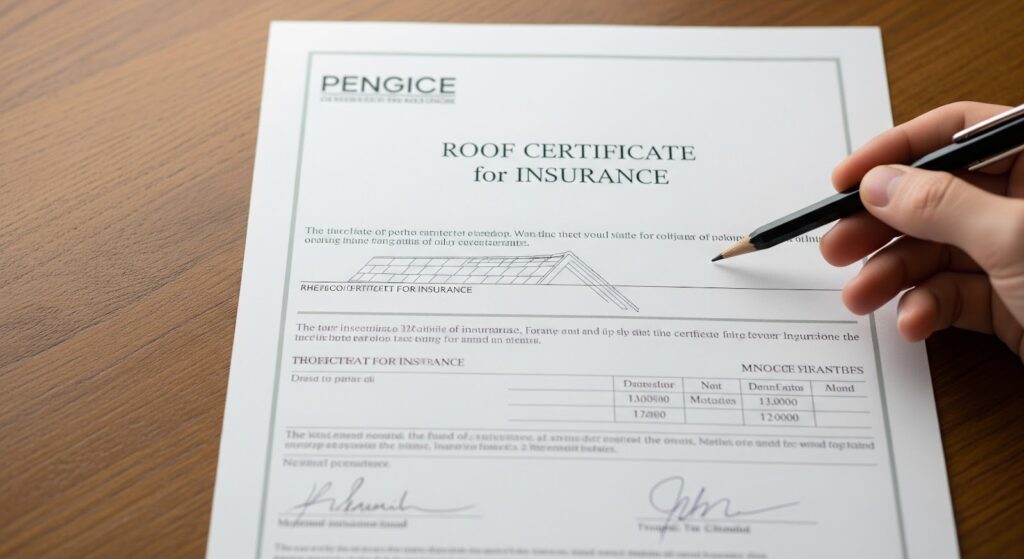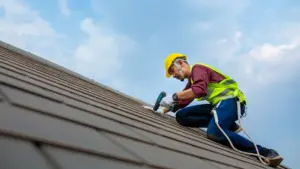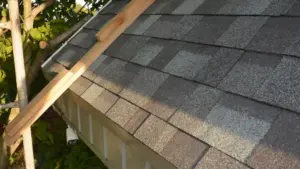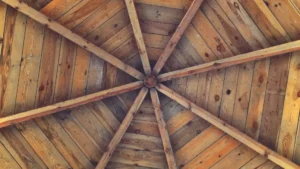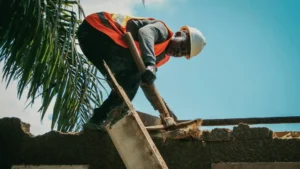A roof is one of the most important parts of a home, yet often the most overlooked. When it comes to protecting your property, insurance companies want proof that your roof is safe and reliable. That’s where a roof certificate for insurance comes in—it’s your ticket to peace of mind.
What Is a Roof Certificate?
A roof certificate is an official document issued by a certified roof inspector that verifies the condition, age, and expected lifespan of your roof. Think of it as a health check-up report, but for your roof. Just like a doctor confirms your well-being, this certificate reassures insurance companies that your roof is in good shape.
Typically, a roof certificate is valid for two to five years, depending on the roof’s material, quality, and age. The inspector carefully examines the shingles, flashing, gutters, and overall structure, then prepares a detailed roof inspection report for insurance. This document outlines the current condition, any repairs needed, and the estimated number of years the roof will last without major issues.
For homeowners, having a roof certification document means fewer headaches when renewing or applying for insurance coverage. It also strengthens your position in real estate transactions, since buyers and lenders often want proof that the roof won’t collapse anytime soon.
In short, a roof certificate bridges the gap between a home’s physical condition and an insurer’s risk assessment. Without it, getting or maintaining coverage could become costly—or even impossible.
Want to know more? Check out our guide on residential roof inspection secrets to uncover tips that help you pass certification with ease.
Why Insurance Companies Require a Roof Certificate
Insurance companies ask for a roof certificate for insurance for the same reason lenders ask for a credit report—they want to measure risk before making a commitment. Here’s why it matters so much:
To Assess Risk
A roof in poor condition increases the likelihood of claims. Insurers want a certified roof to ensure they aren’t taking on unnecessary risks.
To Prevent Financial Loss
Roof damage often leads to costly claims from water leaks, mold, or structural damage. A roof inspection certification helps insurers reduce the chances of frequent payouts.
To Confirm Roof Age and Condition
An old or neglected roof is a red flag. By requiring a roof cert, insurers confirm how long the roof might last and whether it’s safe to insure.
To Ensure Safety Against Weather
Strong winds, heavy rains, hail, and snowstorms test a roof’s resilience. A certified roof inspector evaluates whether the structure can handle local weather conditions.
To Maintain Coverage
Many insurance companies won’t renew policies without proof of a safe roof. A roof certification ensures your policy stays active without unexpected interruptions.
Simply put, insurance providers want to protect themselves while protecting you. A roof inspection for insurance is their way of verifying that your home won’t turn into a financial liability.
Benefits of Having a Roof Certificate
Getting a roof certificate may seem like another expense, but in reality, it brings several long-term advantages:
Peace of Mind
Knowing your roof has passed a professional inspection gives you confidence that your home is protected.
Increases Property Value
A valid roof certification document boosts home value, as buyers feel reassured about one of the costliest parts of the property.
Makes Selling Your Home Easier
During real estate transactions, having a recent roof inspection report for insurance simplifies negotiations and speeds up closings.
Helps You Spot and Fix Issues Early
Certified inspectors often catch small problems—like loose shingles or flashing issues—before they turn into expensive repairs.
Protects You from Unexpected Costs
Without a certificate, insurers may deny roof-related claims. Certification reduces this risk.
Useful for Insurance and Financing
Both insurers and mortgage lenders often require proof of a certified roof before approving coverage or loans.
Negotiation Power in Real Estate Deals
If you’re buying, you can negotiate a better price if the seller can’t provide a valid roof cert. If you’re selling, having one strengthens your position.
Extended Roof Lifespan
Routine inspections tied to certification encourage timely maintenance, prolonging the life of your roof.
In essence, a roof inspection certification doesn’t just serve insurance—it’s an investment in your home’s safety, value, and financial future.
What Does a Roof Certificate Include?
A typical roof certificate for insurance contains detailed findings about your roof’s condition. Here’s what you can expect:
Roof Inspection Report
A written document summarizing inspection results.
Condition of the Roof
Details on the shingles, underlayment, flashing, vents, gutters, and other structural elements.
Repairs Needed
If minor repairs are necessary for certification, the inspector will note them. Some companies only issue the certificate after these repairs are completed.
Estimated Lifespan
A projection of how many years the roof is expected to last without major issues. For example, a 5 year roof certification guarantees functionality for at least five years.
Photos and Details
High-resolution images documenting the roof’s condition, including problem areas or completed repairs.
Together, these details form a roof certification document, which insurers use to finalize your coverage. For homeowners, it’s a roadmap showing the health and future of your roof.
Costs of a Roof Certificate
The cost of a roof inspection certification varies based on several factors, but on average, homeowners can expect to pay between $150 and $500.
Factors That Affect the Cost:
-
- Roof Size and Complexity: Larger, multi-story homes cost more to inspect.
-
- Roof Type: Tile, slate, and metal roofs often require more time and expertise.
-
- Location: Costs vary depending on local demand and living expenses.
-
- Repairs Needed: If your roof requires minor fixes before certification, this adds to the final cost.
Some roofing contractors include certification with a roof replacement or repair job. Others charge a flat fee just for the roof certification document.
While the upfront cost may feel like an extra burden, it often saves money in the long run. Without certification, you may face higher insurance premiums, denied claims, or trouble selling your home.
Think of it like paying for a car’s maintenance check before a long road trip. The cost is small compared to the potential expenses of a breakdown.
Validity and Duration of a Roof Certificate
Most roof certificates remain valid for two to five years, depending on the roof’s age and material. For example, asphalt shingle roofs may get a shorter certification than newer metal or tile roofs.
Insurance companies typically accept a 5 year roof certification as standard, though some may require more frequent updates.
It’s important to note that the certificate guarantees the roof will perform as expected during the covered period. If the roof fails sooner (without external damage from storms or accidents), the issuing contractor may be responsible for repairs.
Renewing the certificate before it expires ensures continuous coverage and keeps real estate transactions smooth. Always check your insurer’s requirements, since some prefer annual or bi-annual roof inspection reports for insurance.
Common Issues That May Affect Certification
Not all roofs pass inspection the first time. Here are common issues that may prevent certification:
-
- Missing or Damaged Shingles: Gaps expose the roof to leaks.
-
- Improper Flashing: Poorly sealed vents and chimneys lead to water damage.
-
- Sagging Roof Deck: Indicates structural weakness.
-
- Clogged Gutters: Prevent proper water drainage, causing long-term damage.
-
- Mold or Rot: Weakens the underlayment and structure.
-
- Ponding Water: Flat roofs often fail certification due to standing water.
-
- Excessive Age: A roof beyond its expected lifespan may not qualify, even if damage isn’t visible.
If your roof fails, you’ll need repairs before a certificate is issued. While this may feel frustrating, it actually protects you by ensuring the roof can withstand everyday wear and weather.
Roof Certificate vs Roof Inspection
A roof inspection is a general evaluation of a roof’s condition. A roof certificate, however, is a formal document that guarantees the roof will remain functional for a set period—usually two to five years.
Think of an inspection as a teacher’s comments on a student’s homework, while certification is the final grade on the report card. Both are useful, but certification carries more authority for insurers, lenders, and buyers.
While you can get a roof inspection anytime, only a certified roof inspector can issue a valid roof certification document.
Tips for Passing a Roof Certification Inspection
Here are practical steps to increase your chances of passing:
-
- Schedule Regular Maintenance: Clean gutters, replace missing shingles, and check flashing twice a year.
-
- Fix Minor Issues Promptly: Don’t wait for small leaks to become major damage.
-
- Trim Overhanging Branches: Prevent falling limbs from damaging shingles.
-
- Keep Records of Repairs: Providing proof of past maintenance helps inspectors see you care for the roof.
-
- Hire Licensed Contractors: DIY repairs may not hold up during inspection.
-
- Prepare for Inspection: Clear debris from the roof and surrounding areas before the inspector arrives.
Following these tips not only increases the chance of passing but also extends your roof’s lifespan.
Frequently Asked Questions
How much does a roof certificate cost?
Between $150 and $500, depending on roof size, type, and location.
How long is a roof certificate valid?
Most certificates last 2–5 years, with 5 year roof certification being the most common.
Can I get insurance without a roof certificate?
Sometimes, but many insurers won’t provide full coverage without it.
Who is qualified to issue a roof certificate?
Only a certified roof inspector or licensed roofing contractor.
What happens if my roof doesn’t pass certification?
You’ll need repairs or replacement before receiving the certificate.
Is a roof certificate the same as a home inspection?
No. A home inspection covers the whole house, while a roof certification focuses only on the roof.
Do all insurance companies require roof certificates?
Not all, but most do—especially for older homes.
Can I transfer a roof certificate to a new homeowner?
Yes, many certificates are transferable, which helps in property sales.
How do I know if my roof needs certification?
Check your insurance company’s requirements or ask a roofing professional.
Are roof certificates mandatory for selling a house?
Not always, but they are highly recommended and often requested by buyers or lenders.

